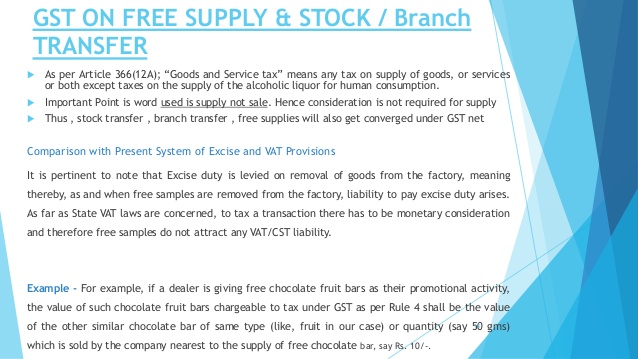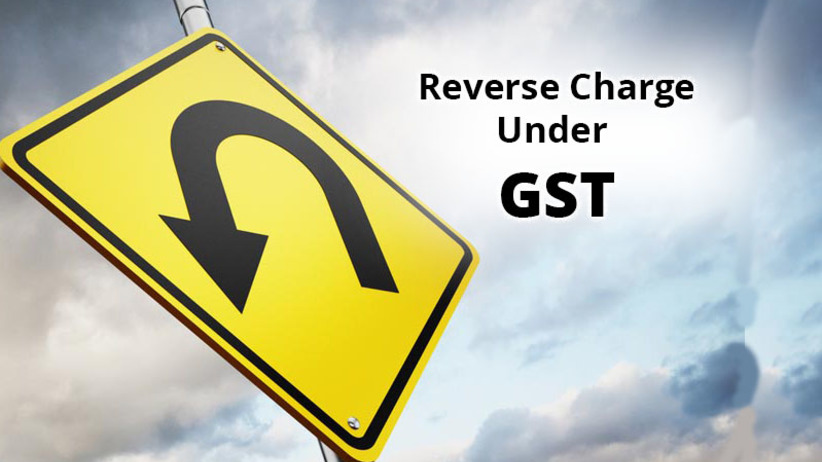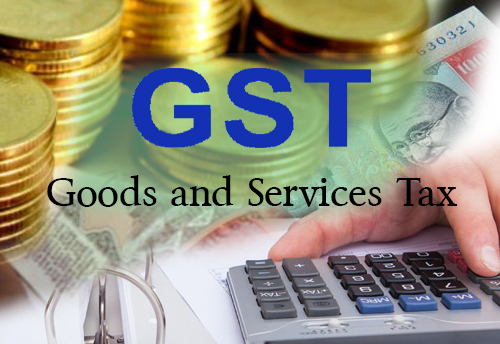OFFENCES and PENALTIES UNDER GST – An Overview

Offences and Penalties (Section 66)

Offences have been prescribed under GST Law on which penalties may be imposed by departmental authorities in terms of Section 66(1) of the Model GST Law. The list consists of 21 offences that are as follows:-
- Making a supply without issuing invoice or with incorrect or false invoice;
- Issuing an invoice without making supply of goods and/or services;
- Not paying tax collected for a period exceeding three months;
- Not paying tax collected in contravention of the MGL to the credit of the Govt. for a period exceeding 3 months from the due date;
- Non deduction or lower deduction of tax deducted at source or not depositing tax deducted at source under section 37;
- Non collection or lower collection of or nonpayment of tax collectible at source under section 43C;
- Availing/utilizing input tax credit without actual receipt of goods and/or services;
- Fraudulently obtaining any refund;
- Availing/distributing input tax credit by an Input Service Distributor in violation of Section 17 or relevant rules;
- Furnishing false information or falsification of financial records or furnishing of fake accounts/ documents with intent to evade payment of tax;
- Failure to register despite being liable to be registered;
- Furnishing false information regarding mandatory fields for registration;
- Obstructing or preventing any official in discharge of his duty;
- Transporting goods without prescribed documents;
- Suppressing turnover leading to tax evasion;
- Failure to maintain accounts/documents in the manner specified in the Act or failure to retain accounts/documents for the period specified in the Act;
- Failure to furnish information/documents required by an officer in terms of the Act/Rules or furnishing false information/documents during the course of any proceeding;
- Supplying/transporting/storing any goods which he has reason to believe are liable to confiscation;
- Issuing invoice or document using GSTIN of another person;
- Tampering/destroying any material evidence;
- Disposing of /tampering with goods detained/ seized/attached under the Act
Offence of aid and abatement
Further a penalty of rupees twenty five thousand has been prescribed for any person who:
- aids or abates any of the 21 offences as mentioned in clause 1 of Section 66;
- indulges himself in transporting, removing, depositing, keeping, concealing, supplying, or purchasing or in any other manner deals with any goods which he knows are liable to confiscation under any provisions of this Act or the rules made thereunder,
- receives any supply of services which he knows is in contravention of any provisions of this Act or the rules made thereunder;
- fails to appear before the CGST/SGST officer, when issued with a summon for appearance to give evidence or produce a document in an enquiry;
- fails to issue invoice fails to account for an invoice in his books of accountin accordance with the provisions of this Act or rules made thereunder.
General i.e. Residual Penalty
Section 67 of GST Model Law states that any person who contravenes any of the provisions of this Act or any rules made thereunder for which no penalty is separately provided for in this Act, shall be liable to a penalty which may extend upto rupees twenty five thousand.
General disciplines related to penalties
Section 68 of The Model GST Law prescribes general disciplines of imposing penalties:
- No tax authority shall impose any penalties for minor breaches of tax regulations or procedural requirements i.e. any omission or mistake in documentation which is easily rectifiable and obviously made without fraudulent intent or gross negligence and where amount of tax involved is less than Rs. 5,000.
- Penalty imposed shall depend on the facts and circumstances of the case. Penalty shall be commensurate with the degree and severity of the breach.
- The tax authority shall ensure that when a penalty is imposed, the reason of imposing penalty is given to the persons upon whom the penalty is imposed, specifying the nature of the breach and the applicable law, regulation or procedure under which the amount or range of penalty for the breach has been prescribed.
- When a person voluntarily discloses to a tax authority the circumstances of a breach of the tax law, regulation or procedural requirement prior to the discovery of the breach by the tax authority, the tax authority may consider this fact as a potential mitigating factor when establishing a penalty for that person.
- These provisions are not applicable when law specifies a fixed penalty.
- No penalty without notice and hearing
- No penalty without giving a notice to show cause and
- Reasonable opportunity of being heard
Penalty for repeatedly making short payments
- Any registered taxable person who repeatedly makes short payment of tax shall be liable to a penalty of rupees ten thousand or ten percent of the tax short paid, whichever is higher.
- A taxable person shall be deemed to have made short payments ‘repeatedly’, if there were short payments in three returns during any six consecutive tax periods.
Detention of goods and conveyances, and levy of penalties (Section 69)
Where any person –
- transports any goods or stores such goods while they are in transit in violation of the provisions of this Act; or
- or stores or keeps in stock goods or supplies goods
which have not been accounted for in the books or records maintained by him in prescribed manner all such goods and the conveyance used as a means of transport for carrying the said goods shall be liable to detention.The release shall be made only after payment of applicable tax, interest and penalty or upon furnishing a security, equivalent to the amount of the applicable tax, interest and penalty.
No tax, interest or penalty shall be determined without giving a reasonable opportunity of being heard to the person.
Confiscation of goods and levy of penalties
If any person –
- supplies any goods in contravention of any of the provisions of this Act or rules made thereunder leading to evasion of tax; or
- does not account for any goods on which he is liable to pay tax under this Act; or
- supplies any goods liable to tax under this Act without having applied for the registration; or
- contravenes any of the provisions of this Act or rules made thereunder with intent to evade payment of tax,
then, all such goods shall be liable to confiscation and the person shall be liable to penalty under section 66 – Section 70(1) of the Model GST Law.
As per Section 70(3) of The Model GST Law, goods after confiscationbelong to Government. No order of confiscation of goods and/or imposition of penalty shall be issuedwithout giving a reasonable opportunity of being heard to the person. Every Officer of Police, on the requisition of proper officer, shall assist him in taking and holding such possession.
There is an option to pay in lieu of confiscation such fine as the proper officer thinks fit. Such fine shall not exceed the market price of the goods confiscated, less the tax chargeable thereon.
Confiscation of conveyances
Any conveyance shall be liable to confiscation if it is used as a means of transport for carriage of taxable goods without the cover of documents as may be prescribed in this behalf. If the owner of the conveyance proves that it was used without his knowledge it shall not be confiscated.
Where any such conveyance is used for the carriage of the goods or passengers for hire, the owner of the conveyance shall be given an option to pay in lieu of the confiscation of the conveyance a fine equal to the tax payable on the goods being transported thereon.
You can go through further details regarding the same chapter about Prosecution and Compounding under GST at
www.itrtoday.com/prosecution-offences-compounding-gst-overview/.


 Sales Tax For E-Commerce: 3 Things Small Businesses Should Know
Sales Tax For E-Commerce: 3 Things Small Businesses Should Know  What Is The GST Liability on Free Supply of Goods and Services?
What Is The GST Liability on Free Supply of Goods and Services?  Some FAQs about GST- Understanding Scope and Provisions of GST
Some FAQs about GST- Understanding Scope and Provisions of GST  Understanding the Reverse Charge mechanism under GST and IGST?
Understanding the Reverse Charge mechanism under GST and IGST?  Pros and Cons of GST- Is Ushering in of GST worth Celebrating as media wants us to believe?
Pros and Cons of GST- Is Ushering in of GST worth Celebrating as media wants us to believe?  Arrests and Detention Provisions under GST in Detail- Are these justified
Arrests and Detention Provisions under GST in Detail- Are these justified  ITAT Amritsar: No Section 269SS Violation for One-Time Cash Payment Before Sub-Registrar
ITAT Amritsar: No Section 269SS Violation for One-Time Cash Payment Before Sub-Registrar  Tax Officials Unleash Digital Dragnet: How New Raid Powers Redefine Privacy, Property Rights in India and likely to Fuel Corruption
Tax Officials Unleash Digital Dragnet: How New Raid Powers Redefine Privacy, Property Rights in India and likely to Fuel Corruption  Income Tax Department Rewards for Reporting Tax Evasion: A Comprehensive Guide
Income Tax Department Rewards for Reporting Tax Evasion: A Comprehensive Guide  Forfeiture of Gratuity by Employer- What are the Remedies for an employee- Can employer be challenged?
Forfeiture of Gratuity by Employer- What are the Remedies for an employee- Can employer be challenged?